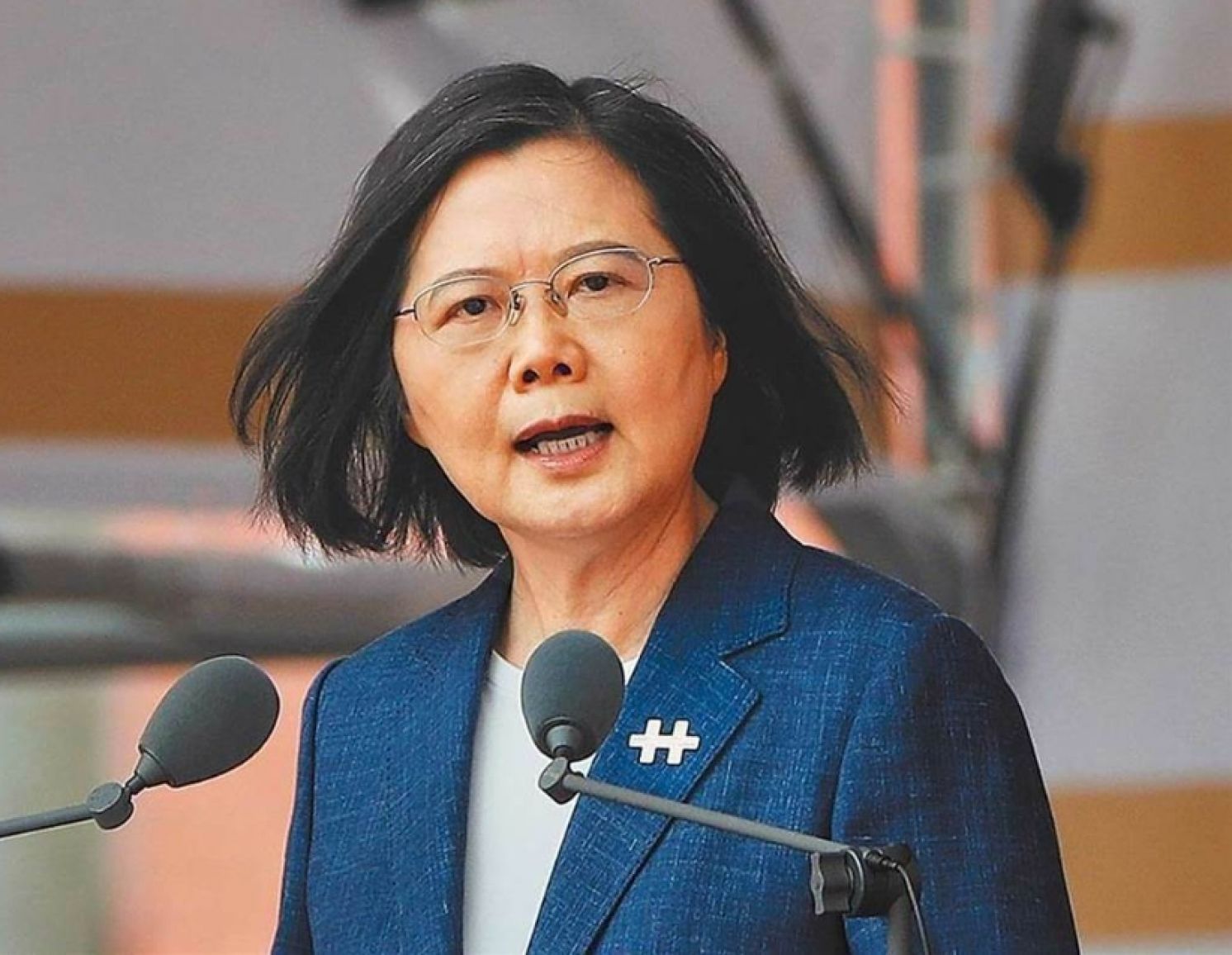
One Good Deed President Tsai Could Do for Taiwan's Democracy
By Wang Chien-chuang
United Daily News, April 17, 2022
Political parties are essential institutions of democracy. Although Taiwan has been practicing democracy for over three decades, the level of democratic maturity seems still very far from the goal of “normalized relationship between political parties”.
Normalizing relations between political parties doesn’t mean that there is no quarrel among different political parties. It rather means that there should be certain level of interactions among leaders of different political parties. The government cannot and should not exclude opposition parties from major national policy making process or just ignore them. Speaker Nancy Pelosi of the United States House of Representatives, who was supposed to visit Taiwan last week, was not on good terms with former President Donald Trump of the United States. Yet for the sake of managing important legislation and national budget, she still regularly went to the White House and met with President Trump to discuss matters of concern. Despite that Pelosi and Trump might both have regrets after meeting with each other, the constitutional process and political reality compel them to meet. This is normal practice how political parties should interact with one another.
But this normal practice in most democratic countries has become rare constitutional exceptions in Taiwan. For example, former President Chen Shui-bian only met with opposition party leader James Soong once. The setting for that meeting was like a meeting between leaders of Taiwan and mainland China, including Lien Chan with Hu Jintao and Ma Ying-jeou with Xi Jinping. Former President Ma Ying-jeou met with opposition Chairman Su Tseng-chang, now premier, once and their conversation was like a debate from beginning to end. Tsai Ing-wen has been president for six years yet she has never invited opposition leaders to her office or official residence. President Tsai just convened a national security meeting to fight the COVID-19 pandemic and invited only Democratic Progressive Party (DPP) mayors. The funny thing is that during a press conference afterwards, reporters asked spokesperson of the Office of the President to explain why mayors of Taoyuan and Kaohsiung were invited while mayors of Taipei and New Taipei, where virus situation are more critical, were not. The spokesperson replied: “Taoyuan has international airport and Kaohsiung has international seaport, so both are gateways for the nation”. Does he mean that gateway cities are so important that the national capital can be abandoned instead?
In fact, the abnormal relations between political parties not only reflect on virus prevention policy but also on other matters. For many years the ruling party has unilaterally dictated all major national policies such as pension reform, forward-looking infrastructure program, transitional justice, energy policy and even cross-strait policy concerning Taiwan’s life and death. Opposition party leaders have never been invited to participate in the process and can only express opinion outside of the Presidential Office Building like commentators. The DPP administration has treated the opposition party leaders as outsiders whom they never notify, brief nor consult on matters of national importance. Taiwan is probably the only case among all democratic countries. Normalized relationship between political parties is not required by the constitution or law, yet it is an integral part of constitutional process and is a necessity for constitutional conventions. Two decades ago, Professor Hsu Tzong-li, who is now a justice of the Constitutional Court and president of the Judicial Yuan, quoted a German scholar and said “It will be disastrous to exclude the opposition parties from the national integration procedure,” and “it is against the principle of loyalty of constitutional organs for national integration”. Further, “it runs the risk of turning modern nation for the people to ‘nation for the rulers’ and “without integrating government and the opposition parties the national integration will miss a corner”. Political party is not a constitutional organ, but Hsu believes the principle of loyalty should also apply to the relationship between government and the opposition party. Both the government and the opposition party are obligated to demonstrate loyal behavior including mutual support, respect and tolerance.
The development of party politics in Taiwan is in opposite direction of what Hsu advocated two decades ago. The government completely exclude the opposition parties from the national integration process no matter who or which political party is in power, making the nation belong to one ruler or one political party. The past presidents have done so, the future presidents will likely do the same, creating a different kind of constitutional convention.
Since it is totally different from others, Taiwan’s constitutional convention is certainly the wrong kind. It is clear that President Tsai’s promise to seek national reconciliation is impossible to achieve. But if she is willing to include the opposition parties in the national integration process, it would be a step in the right direction for normalized relationship between political parties. If the different kind of constitutional convention can be broken, then it will be one good deed by President Tsai in advancing Taiwan’s democracy.